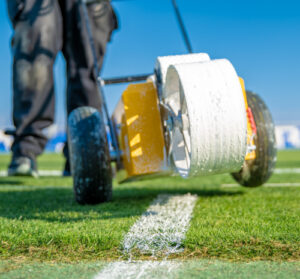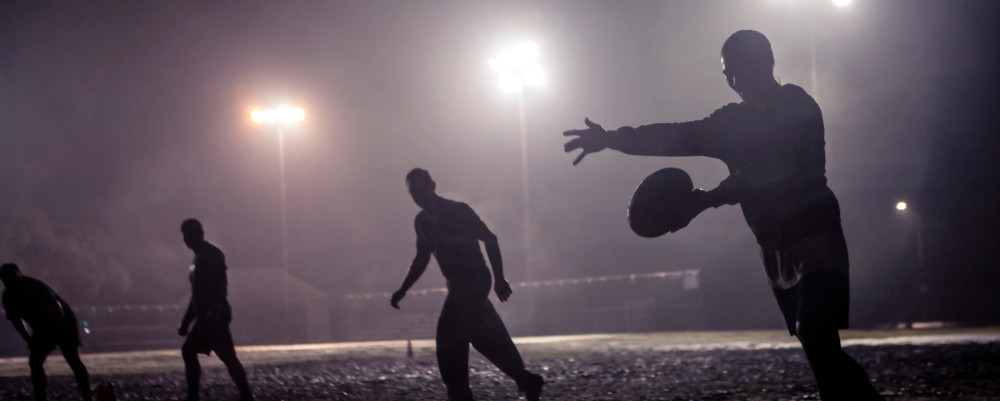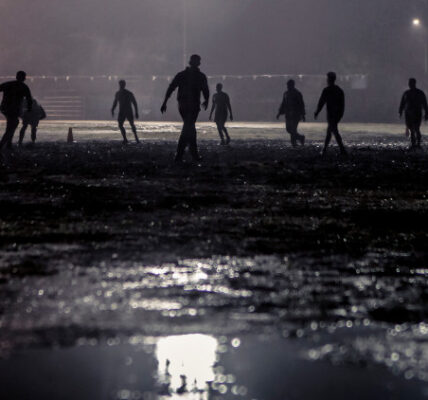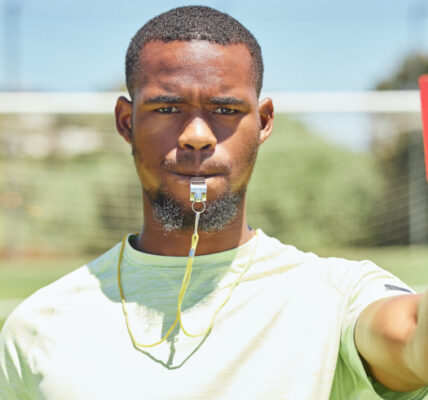There’s an hour before kickoff at Kings Park Stadium. The grass is immaculate, the sky beginning to fade from pale Durban blue into something closer to gold. And somewhere under the stands, beyond the changing rooms and corporate suites, there’s a group of workers adjusting pressure valves, checking emergency exit signs, running through safety drills that most fans will never notice. This is the hidden layer of KZN rugby, the infrastructure no one claps for, but without which, not a single try would ever be scored.
While the focus usually lands squarely on the players, the coaches, and the roaring crowd, there’s a quiet network of operations that makes modern rugby happen. From stadium electricians to groundkeepers and logistics managers, these are the people who ensure the lights stay on, the field stays green, and the entire event runs without a hitch.
Consider the turf. It’s easy to assume grass is just grass. But in stadiums like Kings Park or even smaller venues across KwaZulu-Natal, pitch maintenance is its own science. Grounds crews work year-round, monitoring soil composition, watering schedules, even researching grass types that hold up better under the weight of scrums and spikes. One head groundskeeper at a Durban school rugby field once said, “You can’t have world-class rugby if your field turns into dust by halftime.”
Then there’s the question of stadium sound and lighting. Match days in KZN aren’t just about natural light anymore. From evening fixtures to televised games, lighting rigs have become as essential as goalposts. Behind the scenes, lighting engineers spend hours ensuring there’s not a single shadow too dark or glare too harsh. They run tests the night before matches, making adjustments down to the angle of a single bulb. “Rugby looks better under perfect lights,” one technician said, “but no one notices until it goes wrong.”
Security is another layer. Especially during big matches or tournaments, the amount of planning that goes into keeping thousands of fans safe is immense. Teams are briefed days in advance. Crowd flow is modelled using software similar to what you’d find in airports. It’s not just about preventing fights, it’s about ensuring emergency services can get to someone quickly if needed, about preventing stampedes, about reading the energy of a crowd and adjusting plans on the fly.
And yet, for all that, most fans show up, scan their ticket, and think of nothing but the game ahead. That’s the mark of a well-run operation, when everything feels so seamless, it’s invisible.
 There’s a human side to it too. Many of the people working these behind-the-scenes roles are long-time rugby fans themselves. Some were players once, others just grew up in the culture of KZN rugby and found their way into the ecosystem differently. You’ll find electricians who can list Sharks line-ups from the ‘90s by heart, or security stewards who know the Murray Cup’s entire history. One longtime event manager spoke of growing up in the stands as a boy, now being the person who signs off on final safety checks. “It’s strange,” he said, “to be part of something so big, but always from just outside the spotlight.”
There’s a human side to it too. Many of the people working these behind-the-scenes roles are long-time rugby fans themselves. Some were players once, others just grew up in the culture of KZN rugby and found their way into the ecosystem differently. You’ll find electricians who can list Sharks line-ups from the ‘90s by heart, or security stewards who know the Murray Cup’s entire history. One longtime event manager spoke of growing up in the stands as a boy, now being the person who signs off on final safety checks. “It’s strange,” he said, “to be part of something so big, but always from just outside the spotlight.”
That’s really what ties it all together. The hidden machine behind KZN rugby isn’t faceless. It’s made up of people with their own stories, often just as invested in the game as those playing it. They just experience it through radios and checklists instead of tackles and tries. It extends even further. Consider the catering teams. From the massive braai setups feeding fans outside stadiums to corporate hospitality boxes offering plated meals, a small army of chefs, servers, and cleaners works tirelessly in the background. It’s part of what gives rugby in KZN its particular flavour, literally and figuratively.
And then there’s transport. Teams don’t just appear in the stadium by magic. There are fleets of buses, schedules coordinated to the minute, kit bags unloaded and checked. If one piece falls out of place, the whole event risks running late, or worse, not running at all. All of this is to say, rugby in KwaZulu-Natal doesn’t live on skill alone. It lives on structure, on the unsung engineers, security personnel, logistics managers, and groundskeepers who shape the space so that the magic on the field can happen.
For those who work behind the scenes, there’s a unique pride in knowing they’ll never get the cheer but are essential all the same. It’s its own kind of quiet teamwork. And if that isn’t the spirit of rugby, what is?
Next time the whistle blows and the crowd surges to its feet, spare a thought for the light tech checking his panel from the rafters, or the turf manager watching the game from a tunnel entrance, making sure no one’s torn up his precious grass. They might not wear jerseys, but they’re every bit part of the team.




